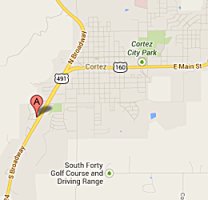It’s All About Relationships
As an early childhood professional you know how to connect with kids, form positive, nurturing relationships with them, and support them as they learn about themselves and others. In your heart you know just how important you are to their social-emotional development, but did you know that it’s a scientific fact that the nurturing, consistent care you provide actually changes children’s brains? If their parents provide healthy, nurturing, responsive interactions at home, then your care enhances their brain development and the quality of their relationships. If, because of family stress or other issues, their parents are not able to provide consistent, predictable, nurturing interactions, then your care plays a critical role in helping their brains develop, as well as helping them become more securely attached, and develop greater resilience when faced with stress or trauma. Click here to read more on brain development and early experiences.
Social-Emotional Milestones
Before reviewing stages of social-emotional development, learn about temperament, its influence on social-emotional development, and the interaction of your temperament and kids’ temperaments at the Center on the Social and Emotional Foundations for Early Learning (CSEFEL).
For a quick overview of social-emotional development from birth – 8, check out PBS Parents Child Development Tracker.
The Colorado Early Learning Guidelines, which are organized by age and include adult activities to foster development in each area, provide the best detail on social-emotional development for Colorado educators.
Understanding Behavioral Challenges
Begin by understanding what constitutes challenging behavior. Click here to learn more. Next, take care of yourself. Did you know that the success of your interactions with children is partly dependent on your own social-emotional wellness? Visit the Self-Care section for some suggestions for wellness. Like the airlines say, “Put on your own oxygen mask first!”
Take the classes offered in our community to learn effective interaction strategies for all kids. Click here to learn about “Dinosaur School” offered at Pinon Project, and here to learn about classes offered through MECC.
If you still have concerns about a child’s social-emotional development begin by making careful observations of the situation. Are the behaviors new? Has something in the group dynamic changed? Has the child recently been sick? All behavior has a message – what is the child communicating? Talk with the family to find out what’s going on at home – this can have a big impact on children. Click here to read a MECC column on the impact of family stress on kids. Get the family’s ideas about their child’s behavior and how they understand it.
Talk with your director, seek advice from one of MECC’s coaches; or talk with another early childhood professional. Remember to do this “…while you still like the kid.” They will help you with “next steps.”
Click here to read a good, short booklet called “You Got It!” on teaching social-emotional skills. The Technical Assistance Center on Social Emotional Intervention, The Colorado Center for Social Emotional Competences and Inclusion, and CSEFEL all have many helpful resources.
 "Friendship," said Christopher Robin, "is a very comforting thing to have."
"Friendship," said Christopher Robin, "is a very comforting thing to have."

Connect With Us!